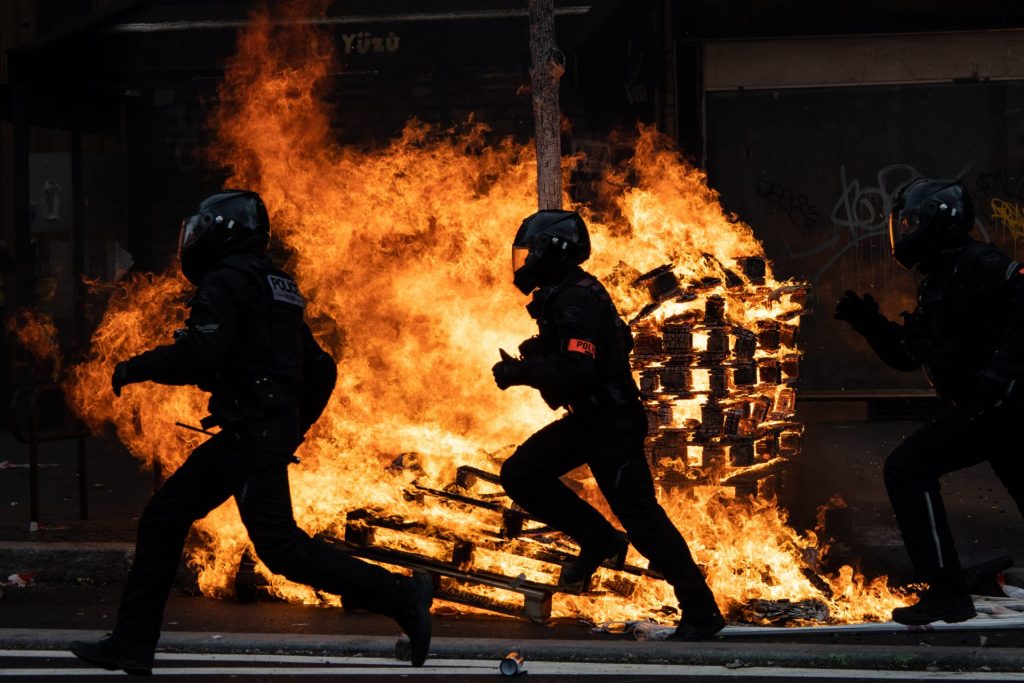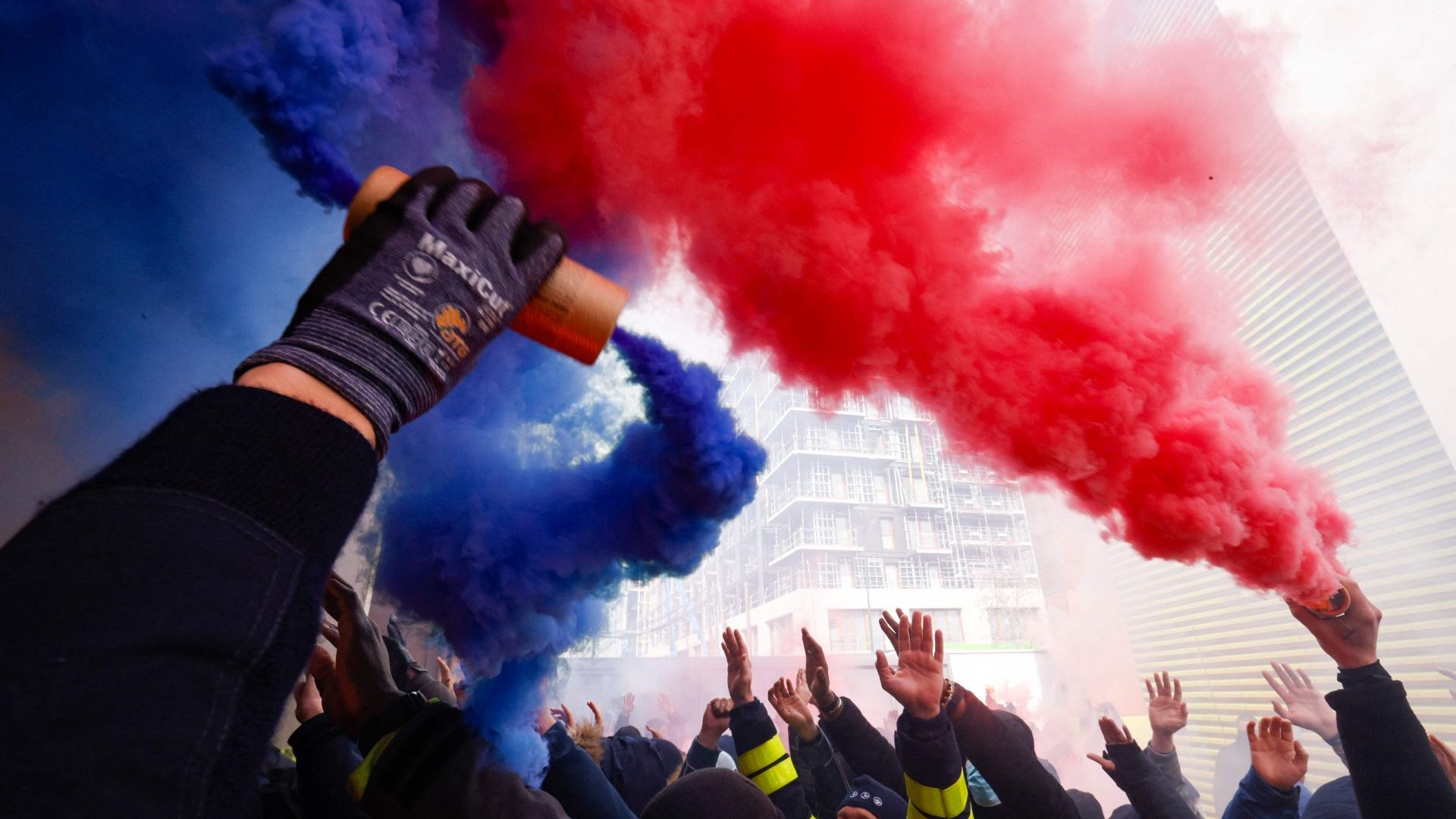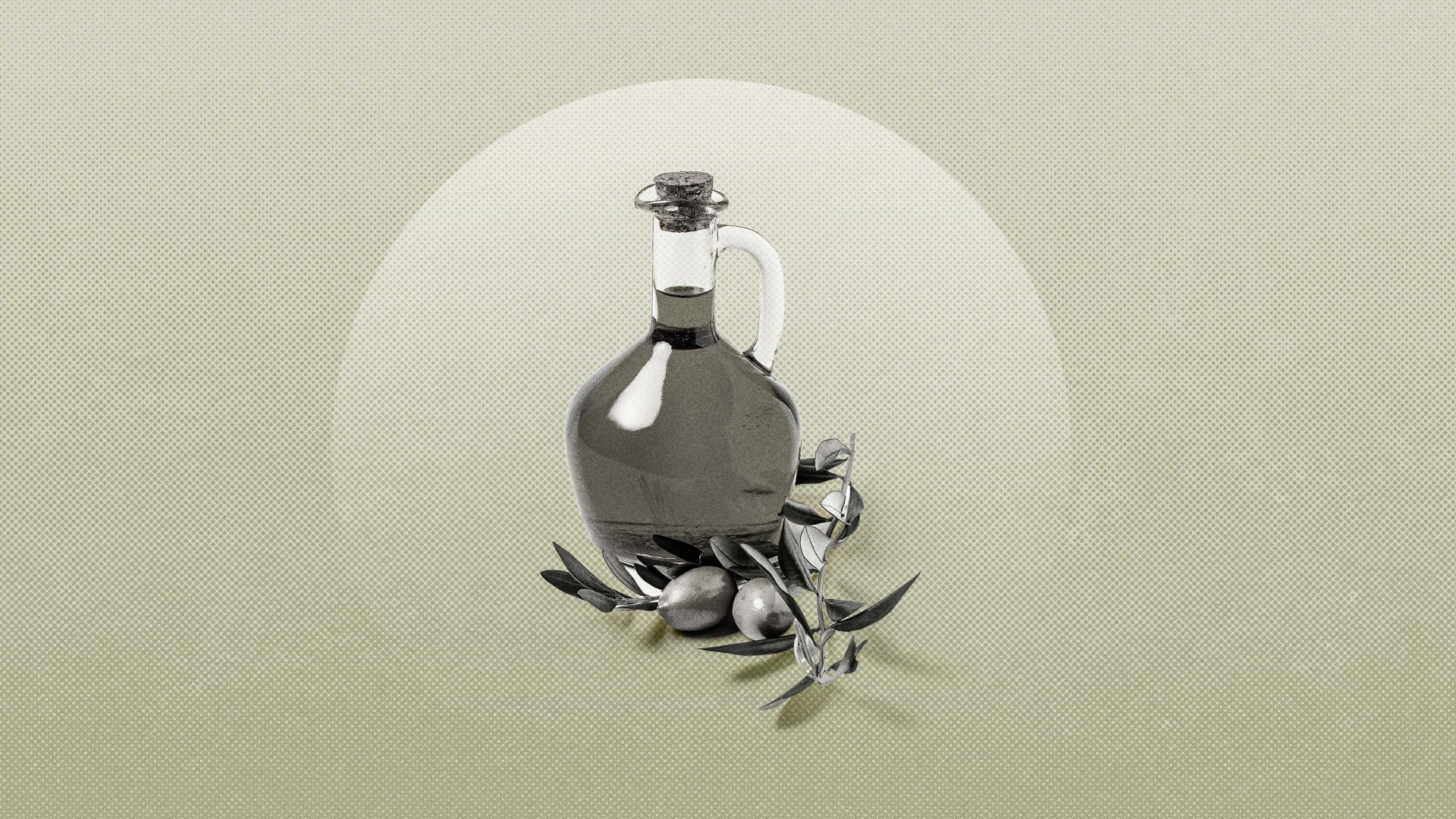In the late Paris afternoon on March 16, I got a phone call from my girlfriend suggesting we go out for dinner. Emmanuel Macron had just bypassed parliament to push through his pension reforms. She thought avoiding our flatmates would make for a more relaxing evening. She was onto something. The subject has caused raging arguments in my apartment – and across the whole country.
The metro car into town that night was filled with commuters and militants, and we checked various websites to get an idea of what was going on. A crowdsourcing app called “Media Manif” showed in real time which areas of Paris were erupting.
When we arrived at Place de la République there was a big crowd, but things were pretty calm. Parents with stickers on their backpacks walked around with their often very young children, older union members waved their flags and opportunistic vendors sold merguez sausages.
Robert, a retiree and longtime member of the General Confederation of Labour, was pleased with the turnout. In his typical red, union vest, he looked a little young to be retired. “This protest is particularly important and it’s definitely the largest that has taken place this year,” he said, adding, “Macron does not listen to French people. So we need this.”
Gradually the mood started to shift. I watched a masked vandal write “McDonald’s, leave us alone, we see too much of you,” underneath the golden arches.
A composed elderly woman entered the now totally destroyed Banque Populaire branch near the Grands Boulevards metro stop. She withdrew cash from a cash machine with the words “game over” written in spray paint right above it.
Further down the road, I watched hundreds of people look upwards and cheer. A group of firefighters had climbed to the top of some scaffolding to light flares in a show of support. We were only 500 metres from our destination at Opéra when armed police blocked off the route.

In the dusk drizzle, the smoke from the fires mixed with the light from the flares. Then, I saw the origin of the bonfires – a group of teenagers who were setting fire to a bin on Boulevard des Italiens. It was around this time, too, that the older, wiser union members started to leave.
When people weren’t chanting “Stand up Paris!” or “Siamo tutti antifascisti!” the old Italian antifascist chant, they talked about their protest movement. One demonstrator was talking about a woman in Rouen who had apparently had her thumb blown off by a dispersal grenade. Others were discussing whether the protests marked the end of democracy, or its beginning.
In the chaos on Boulevard des Italiens, a Brit named James Ivans was selling a newspaper titled L’Egalité. A member of the Socialist Party of England and Wales, he was sent over to help its sister organisation, Gauche Revolutionaire. Eventually, night fell, the Security Corps arrived and the teargas came out.
As most people looked to head home or find sanctuary in a bar, another group emerged. These protestors were dressed all in black and wearing balaclavas, and they threw bottles at the police and set light to anything flammable.
On my way back to the apartment I saw the charred remains of what looked like a brand-new motorbike. At 11pm, nearly home and waiting in my local kebab shop, I watched the silent television. A moving banner at the bottom of the screen said the number of arrested was 172 and climbing.



